The Community-Led Monitoring Strategic Initiative (CLM SI) is being implemented by the Global Fund to provide technical support to increase the scale and quality of CLM mechanisms throughout the Global Fund’s portfolio, and across the three diseases. As an assigned CLM Technical Assistance (TA) Provider for Asia-Pacific, APCASO has received a short-term assignment from Mongolia with an objective to (1) develop an initial CLM strategy to guide CLM implementation; (2) increase knowledge and understanding among the CCM and MTC about CLM; and (3) support identification of CLM interventions to be included in Grant Cycle 7 (GC7) Funding Request (FR). This TA is coursed through the Mongolian Tuberculosis Coalition (MTC) that has submitted a request to Global Fund for a short-term TA support on CLM for the TB program. APCASO is the assigned TA provider under the CLM SI.
APCASO undertook the assignment and visited Ulaanbaatar, Mongolia from 25 February to 03 March 2023.APCASO met with the CCM Coordinator, Oyundari Batmunkh, as well as members of MTC to include Dr. Naranbat Nyamdavaa, Ganzorig Munkhjargal, and Bazarragchaa to inform the group about the workshop. During this meeting, it was highlighted that the timing of the workshop was good because the writing team is in town and that they are looking forward to the CLM inputs as part of the Funding Request.
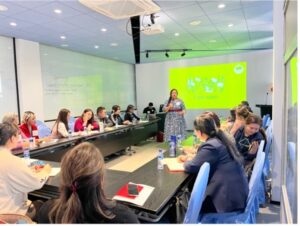
APCASO ED RD Marte introduces the concept of CLM
A total of 30 participants attended the 3-day workshop. On Day 1, APCASO provided awareness about CLM including its principles and some examples from other countries. Towards the end of Day 1, four participants still felt that they are fearful that CLM will not be able to contribute to the TB response in Mongolia, that it will not strengthen communities, and that it will not be included in the Funding Request. However, more participants remain hopeful that CLM will contribute to the national TB response, and strengthen the engagement of communities in the response. Day 2 focused on building the skeletal framework. After an input from the National TB Program and a presentation on the results of the TB Stigma Assessment from MTC, participants were grouped into three. Groups were asked to discuss mainly the CLM structure, wherein results that were proposed were about the challenge of low detection, creating a sustainable CLM structure that can be implemented at the facility level, and building a working group wherein data can help the public inform about TB, its symptoms, and where to seek assistance. They were then asked to reconvene and conduct another round of discussion. During the second round of their presentation, they proposed three concrete elements for their skeletal CLM framework. Day 3 focused on developing their proposed interventions to the Global Fund Funding Request. Following a lengthy presentation from the local consultant to the writing team, participants were given commitment that the interventions that would be proposed during this workshop would be received by the writing team and would be integrated in the appropriate CLM module (RSSH: CSS) of the Funding Request. Participants were broken into 3 groups once more wherein they proposed specific interventions around (a) community mobilisation, (b) establishment of CLM working group, and (c) CLM data collection implementation. These interventions were expanded further through a matrix that APCASO team developed. This matrix would hopefully guide the writing team in integrating these interventions into the Funding Request. The day ended with most participants scoring 9 and 10 in terms of them being hopeful that they are that a) communities are strengthened to implement CLM and address stigma and discrimination, and b) CLM will contribute to decreasing the TB burden in Mongolia.
“what kind of ‘horse’ will help you implement CLM?”
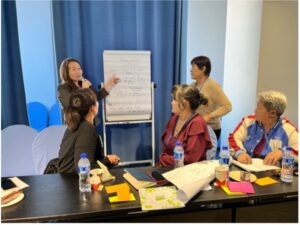
Participants presenting their proposed CLM interventions for their GC7 Funding Request
This technical assistance resulted in the following achievements:
Objective 1: To increase knowledge and understanding among the Country Coordinating Mechanism (CCM) and MTC about CLM:
- Many of the TB stakeholders who attended the CLM orientation workshop had an initial understanding and awareness about what is CLM and what is not CLM.
- Most of the participants in the orientation workshop were hopeful that CLM establishment and implementation will create opportunities for improvement in TB care and services.
- Most of the participants look forward to participating in the implementation of CLM process, in particular the TB survivors would like to be in the forefront of CLM in Mongolia.
Objective 2: To support identification of CLM interventions to be included in the GC7 TB-FR to be submitted in Window 1 (20 March 2023):
- Proposed interventions for inclusion in the Global Fund Funding Request for GC7 were identified, including specific activities, budget line items and schedule of implementation. The key interventions include: 1) Establishment and operationalization of CLM Working Group; 2) Establishment and strengthening TB network of TB survivors and affected community; 3) Data collection and analysis; 4) Advocacy; and 5) Monitoring, evaluation and documentation. (See Annex 7 for details).
- Most of the proposed interventions and activities were included in the submitted GF Funding Request for 2023-2025.
Objective 3: To facilitate a process to develop a national CLM Strategy on TB to guide implementation of CLM plan in the TB program for the country:

Day 3 feedback on the level of confidence of participants to implement CLM in the country
A skeletal framework was developed by the workshop participants with the following components: 1) Issues that will be addressed by CLM; 2) structure/mechanism that will facilitate CLM; 3) CLM stakeholders and their roles; implementation; 4) Key information that will be collected through CLM; 5) Priority areas for data collection – piloting of CLM; and 6) Challenges in CLM implementation that will be addressed.
- A Proposed CLM Strategy for TB in Mongolia was developed based on the skeletal framework, proposed CLM interventions, TB epidemiology and preliminary findings of the desk review.
APCASO looks forward to its continuing work and partnership in Mongolia following this assignment.
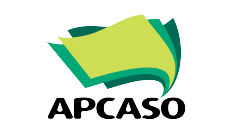
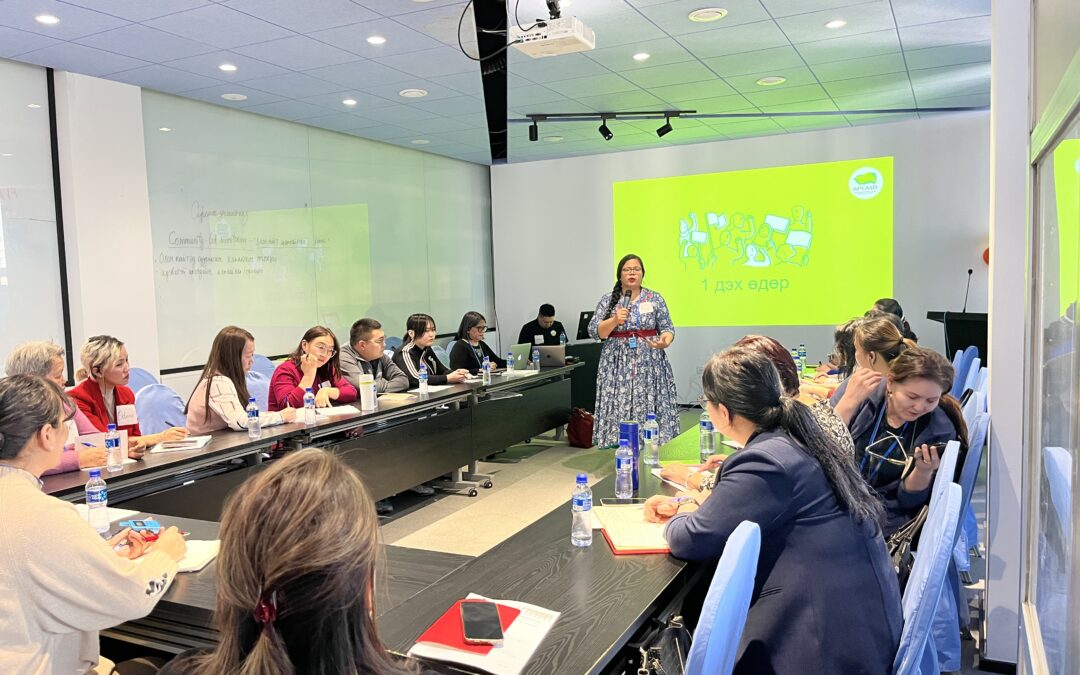
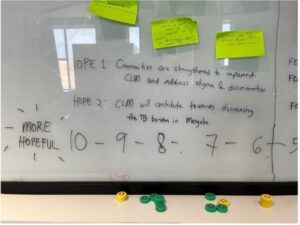
This was an amazing 3-day workshop in Mongolia. Well planned and executed!
Thanks to APCASO team–RD, Jeff and consultant Mary Leny!
Thank you too! Let’s continue this strong partnership to ensure that CLM is working effectively in Mongolia!